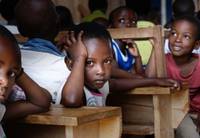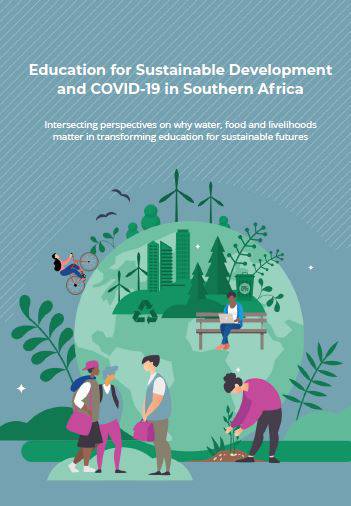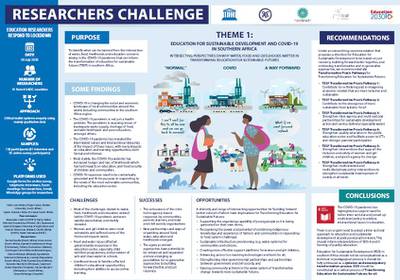Theme 1: Education for sustainable development: COVID-19 education response intersections with the food, water and economic (livelihoods) crisis
Thematic lead:Heila Lotz-Sisitka
Co-lead: Injairu Kulundu
Peer Reviewer: Alexander Leicht (UNESCO), Rafael Mitchell (Bristol University), Experencia Jalasi (Lilongwe University of Agriculture, Cecilia Njenga United Nations Environment Programme (UNEP)
Lead Organisation: Rhodes University
Background
The COVID-19 crisis erupted as a global health pandemic that has been spreading at an unprecedented rate across the world. So far, African countries have not been as badly affected as some of the countries in Europe, but signs are that community spread is still on the rise in most countries. There is therefore much uncertainty as to how this pandemic will play out in Africa and what its impacts might be. Currently health, food, water, economies, livelihoods, and education systems are heavily impacted by the rapid lockdown strategies implemented by governments to curtail the spread of the pandemic. While results have been good in terms of flattening the curve and containing spread (at least initially), much uncertainty remains as to how to respond to and deal with the ‘fall out’ of the pandemic in terms of the intersecting concerns.
Key Research Questions/Objectives
The main question of this theme is ‘What can we learn from this intersecting crisis for transforming education for sustainable futures in southern African countries’.
The research process will generate a few additional questions including, but not limited to:
- Can stronger school-community-government partnerships help to reduce risks and challenges such as those being faced now under the COVID-19 crisis?
- What can our governments do better?
- What can communities and parents do?
- What can educators and learners do?
- What systems need to be generated to ensure an alternative, transformed future and what is the role of education in this story?
We will focus our questions into two phases: An exploratory phase in which we will surface the intersecting concerns briefly introduced above, and a synthesis phase, in which we will begin to ‘pull together’ our insights to offer a synthesis view on our topic.
Download the final report and infographic
|
|
|



